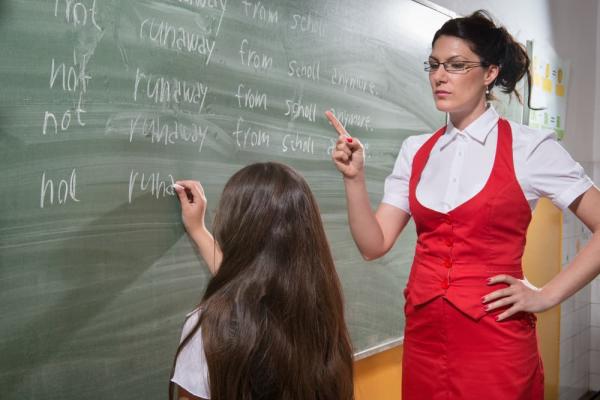
Children make mistakes
Our world is a massive classroom. Children have a staggering number of opportunities to explore, learn, and grow. We have literature in our homes, mathematics in our stores, and science in our trees. The most valuable thing this classroom offers is real-world experience, with social and emotional lessons occurring daily. One of the best ways our children learn in this classroom is by making mistakes.
Children are always learning. That's what they're programmed to do. In this learning process, children will need to figure out (with some guidance) what is right and what is wrong. We know that the best way to do this is through making mistakes.
Jim Fay has addressed mistakes in his parenting book, "Love and Logic."� He makes it known that mistakes are inevitable and will probably happen daily; helping our children learn and grow along the way. It's important to remember that as our children are making mistakes and learning, we need to support them, love them, and help them.
Loving them despite mistakes
The way some parents love is somewhat conditional. We see some parents loving and praising their children when they do something right, but when their children make a mistake, that love seems to disappear.
If a child observes his parents only loving him when he does something right, then he is never going to gain the courage to make decisions. He will always second guess if his decisions will make mom and dad love him. We know it's OK to make mistakes. But our children also need to know it. They won't learn that concept if our love ends when mistakes happen.
In Alfie Kohn's book, "Unconditional Parenting,"� he talks about how loving our children during their mistakes can be one of the best things that we do. Our love for them needs to be unconditional. If we love them unconditionally, they will have the courage they need to make mistakes, fix them and learn from their mistakes. All the while knowing that we will love them no matter what. Our love for them is one of the biggest supports they need as they go through the learning process of making and fixing mistakes.
Helping children fix mistakes
Let's say your son comes home from school in an incredibly bad mood. He is slamming doors, uttering terse statements, and yet demonstrates a quietness you've never seen before. You instantly start thinking of things that could've happened. At the same time, you start thinking of ways to help your son feel happy again. After an hour or so, your son finally comes to tell you what is wrong. "I got a detention today,"� he states with a sad face. You ask what happened. "My teacher caught me cheating on my test in history,"� he replies, choking back a sob.
You understand that he's probably had a rough day and empathy begins to seep into your heart. Our first instinct may be to get mad at his behavior, or try to figure out how to solve this problem for him. Let me tell you; it's neither.
We want to help him solve this problem and learn from this mistake, but we need to remember that we are just his helpers in this process. In John Gottman's book, "How to Raise an Emotionally Intelligent Child,"� he says, "Work with your child to come up with options for solving the problem. Parent's ideas can be a boon, especially for younger kids who often have a hard time generating alternative solutions. It's important to refrain from taking over; however, if you really want your child to own the outcome, you should encourage her to generate her own ideas."�
As our children make mistakes, we need to be sure not to take over. Instead, we need to help them come up with a way to fix the problem on their own. As Gottman stated, younger children may need a little more assistance, but we still need to let them solve problems on their own so they can truly take full credit for fixing their mistake. After they come up with their own solutions, they will feel more confident in their abilities and will better understand why their behavior was incorrect in the first place.
Just remember, we all make mistakes. We all need to learn from them. Yet, our children have a unique and important need to learn from their mistakes. They are newer to the world, and they are finding their role in it. As long as we are here to unconditionally love and support our children, they will learn how to overcome their mistakes and become better people through them.

